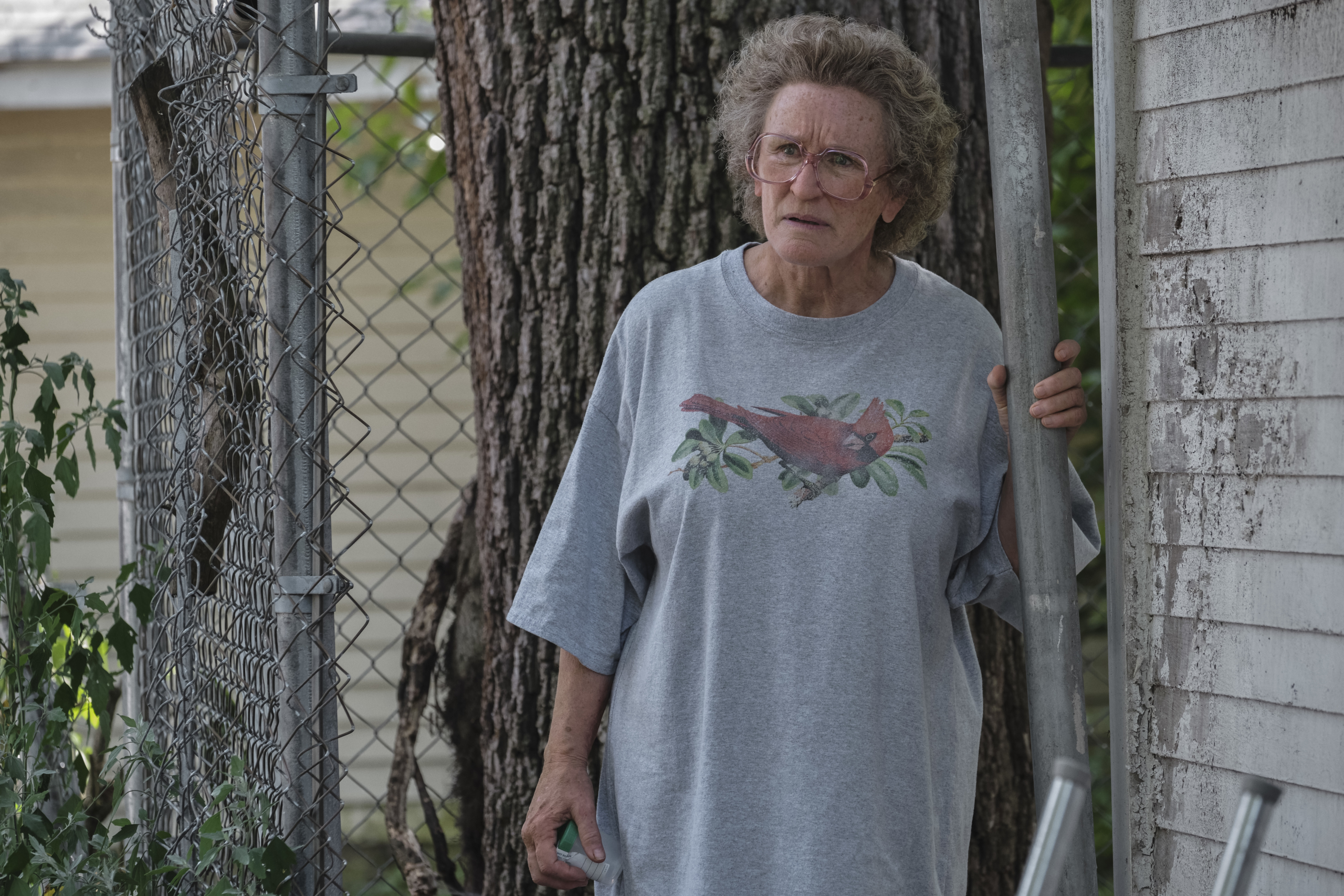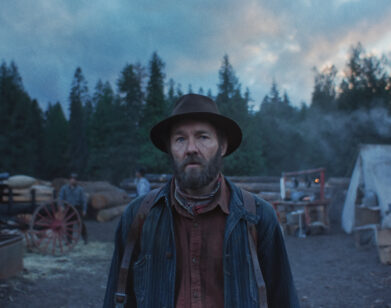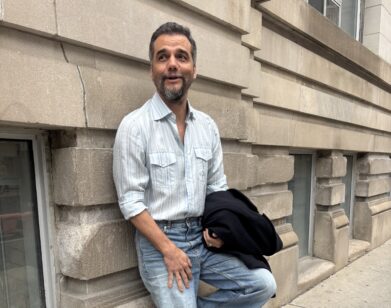exit poll
Hillbilly Elegy Is an Accidental Camp Masterpiece

Glenn Close (“Mamaw”) in Hillbilly Elegy. Photo Cr. Lacey Terrell/NETFLIX © 2020
Much like its characters, Hillbilly Elegy arrives on Netflix with unwanted baggage. Ostensibly an Oscar vehicle for two perennially overlooked greats, Glenn Close and Amy Adams, Ron Howard’s multigenerational Kentucky melodrama has already been swiftly sidelined by a barrage of terrible reviews. It’s also based on a 2016 bestseller of the same name, whose author, J.D. Vance, comes with his own crooked halo of controversy: After Elegy’s success, Appalachians took issue with its depictions of the region from someone who they labeled as an interloper. They also criticized his “up by the bootstraps” moralizing which failed to take a serious look at the economic systems that perpetuate addiction and cycles of poverty, as well as to acknowledge the region’s strengths. Vance’s story of unlikely upward mobility—he joined the military, then graduated from Yale Law—verges on condescension when he contrasts himself with the wiley and debilitated ghosts of his family past. So how might Hollywood attempt to interpret this as an inspiring and empathetic ballad for the masses? Apparently the answer is wonderfully badly. Whatever the cryptic intentions, Hillbilly Elegy is the best kind of camp masterpiece: an accidental one.
We begin the film with a vision of late-’90s Kentucky that verges on saturated Disneyana. We see two toads sharing a lily pad in rich depth of field, drone shots of serpentine backroads, rusty bicycles, old Panasonic radios, jittery handheld shots juxtaposed with sweeping tracking ones set to mawkish string accompaniments. Our protagonist, J.D. (played in his youth by Owen Asztalos), even brakes on his bike ride for a turtle crossing the road. Howard, maker of memories as disparate and indelible as Parenthood, Willow, Apollo 13, and Cocoon, is a master of a certain type of accomplished commercial filmmaking, specializing in building impressive worlds that tell heartfelt stories that appeal to a wide audience. With Elegy, he takes great care to do just that: everything from the production design to the costumes and hair, to the casting, to the cinematography, and even the soundtrack (look for authentic period music from Local H, Ghosttown DJs, and Eagle Eye Cherry, for starters) is of the caliber we’ve come to expect from a Ron Howard film. Even the actors are oddly proficient. If anything is off, it’s the story, the point of view, and therefore the screenplay (written by Vanessa Taylor) that abounds with reconfigured cliches and stale dialogue, not to mention an unreliable narrator and action that is so nonsensical it verges on dadaism. The short version is that J.D. grew up raised between households with multiple stepfathers, the result of his mother’s hopeless addictions and deep psychological traumas, and is forced to reckon with continuing the cycles of abuse or getting out the only way he can: by studying hard at school.
Amy Adams portrays J.D.’s mother, Bev, as a time bomb of violent mood swings, overplaying some vague idea of affliction divorced from signifiers that would connect her state of mind to any knowable narcotic. She’s not drowsy or vacant, like a heroin addict, nor talkative and energetic like a cocaine user. It’s almost like we are to believe sobriety is her ultimate trigger, in which case Adams does a phenomenal job being as volatile as possible, all running mascara, flying fists, and frizzy bangs. Adams has always been a spiky actress, excelling in the peaks and valleys that reveal the vulnerability of our very nature, summoning the uncomfortable emotions we try to avoid. She’s always been good at striking fear. By going so far in Elegy, she lands closer to Linda Blair than anyone could have hoped for, portending a long future for Bev in the pantheon of movie maniacs we never wish to meet in real life. This is all to her credit, in case that’s not clear.
However, Glenn Close wins the Snatch Game with her performance as J.D.’s grandmother, a woman universally dubbed “Mamaw.” To see one of cinema’s most formidable performers lean so heavily into caricature is nothing short of the ooh-aah sensation of our paltry cinematic year. That she’s doing it this far into her career is pure gonzo virtuosity. I’ve heard it hypothesized that Mamaw would best be utilized in a spoof or a satire, to which I must disagree. It’s the patina of seriousness in this movie that makes her so astonishingly funny, which is to say, accidentally. But is it good? These are the paradoxes of bad cinema and the mitochondria that can spark a cult classic dialectic. It’s still true of Glenn Close that to witness her is to become transfixed, and to be made aware, when you least expect it, that she is a wonderfully sensitive actor. Mamaw’s emotions in each scene feel real to the character. But there are so many layers of incidental irony at work it feels like a spectacle you’re made to gawk at now and question later.
The cynical reading of the film is that it’s an awards grab by liberal Hollywood elites, signaling empathy by depicting what they think the Appalachian belt (read: Trump voters) are like. But in doing so they careen helplessly into caricature—and, through the patrician filmmaking style at work, mockery—thereby humiliating their subjects beyond the confines of logic and revealing how much they themselves actually despise the poor. But this reading is complicated by the author’s involvement as well (Vance is billed as an Executive Producer). Does Vance view his family and background with such disdain, or is it the filmmakers? The best movies I’ve seen this year regard their characters, however dastardly, with affectionate care. This film has none of that fondness, opting for horror and pity instead.
The film’s best scenes are inadvertently its most ludicrous: adult J.D., played by Gabriel Basso (honestly? Hot), sneaks a meal into a university library to coax his overworked girlfriend Usha (Freida Pinto, also hot) to eat, like she’s a famished urchin: “You have to eat!” he urges. Then there’s the scene when Bev accelerates her Bronco more the angrier she gets, until she is clamping her dirty Ked sneaker pedal to the metal, threatening to drive off a cliff or into oncoming traffic in a murder-suicide out of the blue. There’s also a foray into Nickelodeon logic, when Bev takes a stolen painkiller from a patient and is high within seconds, prompting her to flirtatiously purloin a pair of rollerskates and kamikaze her medical career as she soars down the hallways to Bananarama. That scene is a flashback. Half the movie is made of them in no particular order, and then there’s a second layer of flashbacks in—you guessed it—sepia tone (in one sepia moment, we watch Young Mamaw, with old Mamaw’s same voice and physicality, light her husband on fire). The flashbacks stack upon one another as if to compound some idea of generational trauma, but never seem to reach a catharsis, certainly not in the long end stretch that feels pointless and without stakes.
Even still, the movie has its saving graces. There’s the way it draws a line from observed behaviors to learned (and in this case, unlearned) ones. There is authenticity in the helplessness of Bev, the relentlessness of addiction, the lies she tells to placate her family while she navigates her next fix, all in the third act. Close has a scene that nearly accomplishes what it’s meant to, in which Mamaw lays plain her motives for pushing J.D. to be better than his mother (it’s a half-sell because it’s a narcissistic authorial slant in the first place). And there is the bright spot that is Haley Bennett as J.D.’s sister, Lindsay. Bennett has long been an actress with disarming depth and emotional access, often elevating material that’s beneath her talent. The fact that she manages to outshine a star-studded cast in a Ron Howard film that is nevertheless panned is bittersweet, but certainly indicates that she’s destined for bigger things.
Whether too earnest or too cynical, poorly written or born of bad source material, Hillbilly Elegy is certainly an elegy to a certain type of movie, one in which mainstream Hollywood deigns to tell the stories of forgotten Americans who can tell their own stories better themselves—look at films like The Florida Project, or American Honey that accomplish just that. I’d like to think there is still room for an old-fashioned Oscar-baiting pity party like this one, where A-list actresses strip themselves down and do hardscrabble, heroin-addled, hysteria their way. And that room exists. It should contain psilocybin, or very funny family and friends that make watching it a holiday joy instead of a quiet disturbance in a dark room. Just don’t laugh at the hillbillies because they’re hopeless. Laugh because Hillbilly is hopelessly camp.






